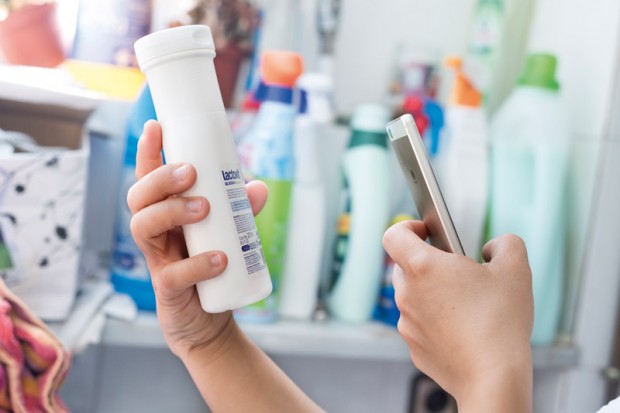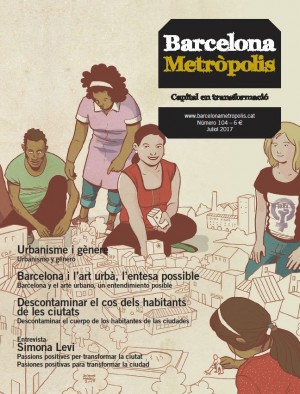A number of simple, tried and tested rules can reduce a typical city-dweller’s exposure to hormone disrupters.

A mobile application developed in Barcelona enables users to obtain data from a product’s barcode regarding its health effects, environmental impact and corporate social responsibility.
Photo: Dani Codina
“The problem of disruptors is a global one and it has to be solved on a global level: with as much regulation as possible. In the meantime, as long as we don’t have these laws, we can all take steps individually to reduce our exposure to endocrine disruptors”, says Ángel Nadal, Professor of Physiology at Miguel Hernández University of Elche.
“Taking individual actions requires effort. Reading labels is time-consuming and one can’t expect the general public to be experts. In addition, some disruptor-free products are more costly”, admits Ruth Echeverría, who gives training courses on disruptor-free products at the Fundación Alborada.
However, all the experts we consulted agree on a set of simple rules that can help to reduce exposure to disruptors, for any typical urban dweller.
In terms of food, for example, they recommend buying organic fruit and vegetables and to always wash and peel those that are not; to cook at home and to use stainless steel frying pans and saucepans (avoiding non-stick ones); to eat fewer products that come in plastic packaging or tins or that are kept in Tupperware (better glass or ceramic); not to heat up food in Tupperware or drink hot drinks from plastic cups or mugs; not to wash plastic in the dishwasher; and during pregnancy, not to eat tuna or salmon more than once a week.
When it comes to cleaning and cosmetics, it’s best to avoid cosmetic products (especially those that contain phthalates, triclosan or parabens) and cut down on the use of sun creams (better to wear sunhats and t-shirts) and wet wipes, especially on young children. Another recommendation is to wash newly-bought clothes before wearing them.
Ventilating the house well and not using insecticides or pesticides on house plants are also steps that one can take against the presence of disruptors. Given the choice, it’s better to have objects made from wood, paper, metal, glass or ceramic than plastic (for toys, for example). And one must be careful with the ink on shop receipts.
These tips are based on studies that have shown them to be effective. For example, in 2011 one study showed that the indicators of disruptors in the urine of twenty individuals who limited their intake of food from plastic packaging or tins for three days, fell by 50-100%.
The effort of selecting disruptor-free products may soon get a little easier, thanks to a mobile app created in Barcelona, currently being prototyped but soon to be launched on a wider market. It’s called Abouit and it’s an app backed by businessman Tabaré Majem Olivera, with the support of the Universitat Autònoma de Barcelona’s Institute of Environmental Science and Technology, among other organisations. The app scans the product’s bar code and gives information on health, environmental impact and corporate social responsibility. Its database holds information on tens of thousands of products, based on scientific publications and experiments specifically conducted for the purpose in the laboratories of a Catalan firm, InKemia.
However many actions we take ourselves, we can never be completely protected from disruptors. It’s a systemic problem: in 2011, for example, dioxins were even found in organic eggs produced in Aragon.
“I believe the solution has to be a combination of legislation and individual actions. Legislation can bring about instant, widespread change. At the same time, consumers can put pressure on producers”, thinks Leonardo Trasande, researcher at the New York University School of Medicine. “Disruptors are a problem, but they are also an opportunity to innovate in agriculture, food and green chemistry: we wouldn’t only be helping our health, but also the economy”, concludes Nadal.



